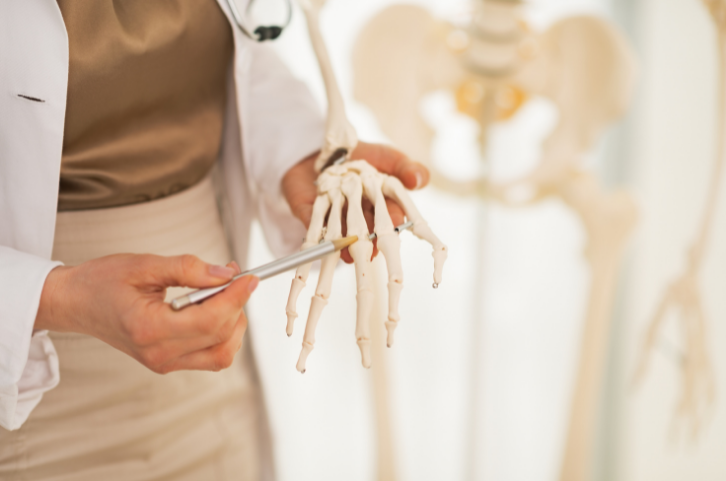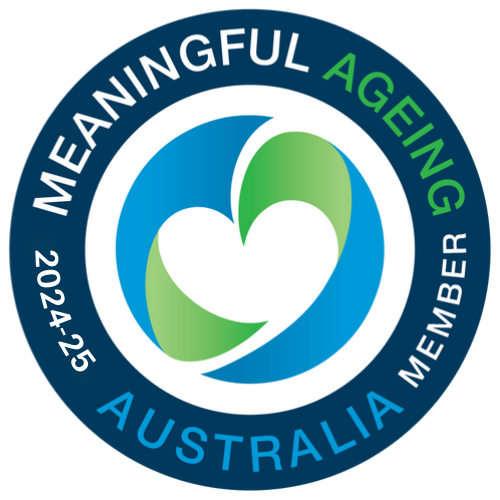How to keep bones healthy in old age
As we get older, our bones may weaken due to a number of factors, such as insufficient nutrients or hormones. It is therefore very important to ensure we look into how to get stronger bones, and give our bones the proper attention and care that they deserve by eating healthy meals and getting regular exercise.
Poor bone health (at any age) can lead to an increased risk of developing conditions like rickets (softening of bones due to Vitamin D deficiency1), osteoporosis (weak or brittle bones due to vitamin or hormone deficiency2) or bone breakage later in life. The deterioration of bones over time can eventually result in gradual loss of movement, which impacts quality of life.
Fortunately, there are some simple things that you can do to take care of yourself and your bones to make sure they stay strong for longer. Keep reading to find out some easy tips to strengthen bones.
Why is exercise important for healthy bones
One of the most important tips for healthy bones is to maintain regular exercise. Exercise is crucial for maintaining an overall healthy lifestyle, as well as strong bones. Maintaining a healthy, stable weight can also contribute to your bone health. Certain weight classes can put themselves at more risk of bone conditions. Those who are underweight are more at risk of developing osteopenia and osteoporosis. Postmenopausal women who have lost a lot of their natural production of oestogen are especially vulnerable to degenerative bone conditions.
On the other hand, being too overweight can also see an increase in the risk of people being subjected to bone fractures, due to stress from weight and impaired bone quality.
The most detrimental state for bone health, however, is a repeated loss and gain of weight. This is because bone density is often lost when body weight is lost, however not necessarily regained when body weight is regained.
It is important to try and avoid drastic changes to your weight by maintaining the amount you eat and exercise, and to ensure gradual weight change is occurring while consuming the proper vitamins and minerals to maintain bone density.
What nutrients are necessary for healthy bones
Calcium is one of the most essential minerals for bone health, with 99% of the body’s calcium being stored in the bones!3 It is responsible for ensuring good bone strength and overall health. If you are not getting enough calcium in your diet, through food or calcium supplementations, other tissues in your body may draw calcium from the mineral stores in your bones, leading to weaker bones over time. To prevent this, it is important to ensure your diet has plenty of calcium for both your bones and other organs. Because of the way your body absorbs calcium, it is important to spread out your calcium intake throughout the day by adding one high-calcium food to each meal.
Some calcium rich and healthy food for bone strength include:
- Dairy products such as cheese, yoghurt and milk
- Nuts, such as almonds, and seeds
- Beans and lentils
- Sardines and other oily fish, including tinned salmon
- Leafy greens
- Tofu
In order to sufficiently absorb the calcium from your diet, your body must have enough Vitamin D. Vitamin D is found in rare amounts through some food, such as oily fish and dairy products. It is mostly sourced through skin exposure to the sun, however can also be gained through Vitamin D supplements4.
In addition to calcium, Vitamin C is a crucial vitamin for maintaining healthy bones, as it stimulates bone-forming cell production. Some studies even suggest that the antioxidant effect from Vitamin C can help protect bone cells from damage. Vegetables are one of the best sources of Vitamin C and play a huge role in healthy bone maintenance.
Because vegetables directly increase bone density through increased cell production, they can prevent you from developing conditions like osteopenia (loss of bone mineral density5) and osteoporosis, which are particularly relevant to older women.
Cruciferous vegetables, or leafy greens, are full of calcium, as well as Vitamin K which also boosts bone health. Leafy greens to keep an eye out for are kale, broccoli, spinach, cabbage and turnip greens. Incorporating some of these into your daily meals will have a huge benefit on your health in the long run!

Activities to maintain healthy bones
There are many ways to build healthy bones, one of which is ensuring a proper diet as discussed above6. The other is to engage in some healthy bone activities. These mostly include weight bearing and high-impact exercises in order to promote bone growth and maintain strength. To find an exercise that is suited to your abilities and body type, you can speak to your family GP, Physiotherapist or nurse for more information.
Weight bearing exercise can involve weight training, or even dancing and walking, anything where you are supporting your body weight against gravity. While exercise such as cycling and swimming are important to your overall health and cardiovascular health, they do not necessarily result in an improvement in your bone density7.
References:
- Melbourne, T., 2022. Kids Health Information : Rickets. [online] Rch.org.au. Available at: <https://www.rch.org.au/kidsinfo/fact_sheets/Rickets/> [Accessed 25 August 2022].
- Bones.nih.gov. 2022. Osteoporosis Overview | NIH Osteoporosis and Related Bone Diseases National Resource Center. [online] Available at: <https://www.bones.nih.gov/health-info/bone/osteoporosis/overview> [Accessed 25 August 2022].
- The Nutrition Source. 2022. Calcium. [online] Available at: <https://www.hsph.harvard.edu/nutritionsource/calcium/#:~:text=About%2099%25%20of%20the%20body’s,%2C%20muscle%2C%20and%20other%20tissues.> [Accessed 25 August 2022].
- Orthoinfo.aaos.org. 2022. Vitamin D for Good Bone Health – OrthoInfo – AAOS. [online] Available at: <https://orthoinfo.aaos.org/en/staying-healthy/vitamin-d-for-good-bone-health/#:~:text=Vitamin%20D%20is%20necessary%20for,deformities%2C%20such%20as%20stooped%20posture.> [Accessed 25 August 2022].
- Cleveland Clinic. 2022. Osteopenia (Low Bone Density): What Is It, Prevention, Symptoms, Causes & Treatment. [online] Available at: <https://my.clevelandclinic.org/health/diseases/21855-osteopenia#:~:text=Osteopenia%20is%20a%20loss%20of,bone%20density%20and%20prevent%20osteoporosis.> [Accessed 25 August 2022].
- Bones.ame.nd.edu. 2022. [online] Available at: <http://bones.ame.nd.edu/factsheet1.pdf> [Accessed 25 August 2022].
- Health.qld.gov.au. 2022. How to keep your bones healthy at any age. [online] Available at: <https://www.health.qld.gov.au/news-events/news/how-to-maintain-healthy-bones-aging> [Accessed 25 August 2022].








